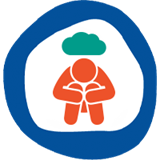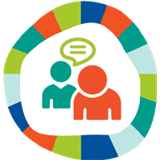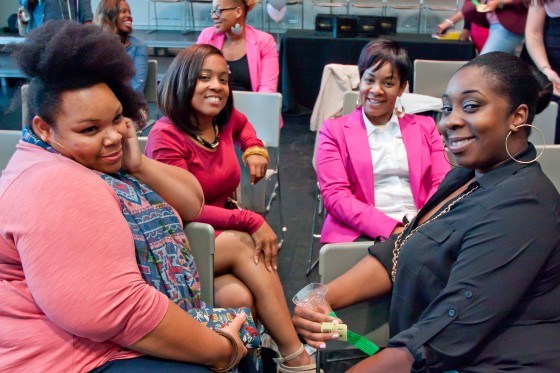What do we tell our children? How do we reassure them of their own safety?
At The Dougy Center in Portland, Oregon, we’ve provided grief support groups for children, teens, young adults and their parents or adult caregivers since 1982.
Based on our experience, here are some things for adults to keep in mind as you struggle with how to talk with children following tragic events, such as natural disasters, plane crashes, or school shootings.
1. Don’t project your fears onto your children. They take their cues from the adults around them.
You can’t hear the news about children being murdered or communities devastated by natural disasters without thinking about how you’d feel if it happened to your family, friends, or hometown. The outpouring of care and empathy for the families who lost loved ones will be powerful, and…we all know it could have been our friends, our child, our family and community members who died or were injured.
Identifying with the senselessness and randomness makes us all feel more vulnerable. But we should remember that children don’t always see things the same way that adults do, and it won’t be helpful to them for us to fall apart. They need to see that we care, that we feel terrible about this tragedy, and that we will do everything we can to keep them safe. They will take their cues from our behavior.
It’s okay to show emotion. We can model for children that feeling sad, scared, and upset is normal after tragedies. But we don’t want to overwhelm them with our emotions, or put them in the position of having to ‘parent,’ or take care of, the adults around them. Make sure you also model taking care of yourself, by sharing with trusted and supportive adult friends, eating (and drinking) healthfully.
2. Try to limit their access to the recurring news and exposure to the tragedy over and over.
Over-exposure to the graphic and emotional news can be overwhelming for children and can cause unnecessary anxiety and fear. Some children who repeatedly watched the footage of planes crashing into the towers on 9/11 thought it was happening again and again. Some children (and some adults) may have difficulty getting graphic scenes and images out of their minds. Too much exposure can fuel their fear, so don’t let them sit and watch the news over and over. Better yet, set the example of not doing so yourself as well.
3. Understand that you can’t completely shield them from what happened.
It would be next to impossible to hide these events from children, as much as we wish we could. You might be able to shield your own child in your home, for example, by not turning on (or owning) a television, but you can’t protect your children from hearing about it from other kids. The fact is, they will hear about it, so although they don’t “need” to know about it, pretending we can shield them is magical thinking.
That said, you don’t need to give them more information than they can handle, or more than they’re asking for. A simple, “Did they talk about what happened in _____ today at school?” would be a good starter. They need to know that you’re not trying to hide the truth from them, that you’re open to talking about it, but that you’re also not forcing them to do so.
4. Model truth-telling and build trust with your children by letting them hear things, even hard things, from you directly.
Eight days after the 9/11 attacks, I was meeting in small groups with pre-school workers in New York City, talking about how to respond to the young children in their care about the events. A man asked to speak to me privately after one of the trainings, and asked for my advice around his 7-year-old daughter. For the last week, since September 12th, she had been having stomach aches and difficulty sleeping. He said it was not tied to the events of 9/11 because, “We don’t have a television.” As his story unfolded it was evident that he did not want to have to explain to his child why people would do such horrible things, a normal dilemma that we face as parents and adults. This child was experiencing physical reactions, as it turned out, not primarily because of her reaction to the events of 9/11, but because she was unable to share her fears and concerns and questions in her own home, faced with her parents’ denial.
Here are some principles to keep in mind as you talk with children:
1. There is no one typical reaction one can or should expect from children.
Their responses will vary all over the ‘emotional’ map, from seeming disinterest to nightmares, eating issues, and anxiety. How any specific child will respond will depend on their age, previous experience with death and loss, and their personality style. Fearful children will tend to worry; quiet children may keep their feelings to themselves; those who want to appear unfazed may exhibit a sense of bravado or lack of caring. Of course, children directly affected – those who had a family member die; those who witnessed the tragedy; those who had friends die – will tend to have longer-term reactions and needs. Watch for changes in behavior, or concerning trends. While it would be normal to have heightened anxiety and sleeplessness, any concerning behavior or troubling symptoms should be taken seriously, and if warranted, professional help sought.
2. Many children will have an increased sense of fear about their safety.
Understandably. So will many adults. After a shooting at an Oregon mall in December 2012, the news outlets were filled with people who said they’d never take their children there again. Others said they’d return as soon as it opened in order to support the stores and employees who had experienced the traumatic events, and whose livelihoods were going to suffer as a result of the several day closure. Some runners in the Boston Marathon vowed to return; others said they would never do so again.
While we can’t guarantee to our children that nothing bad will ever happen to them, we can provide assurance that these events are relatively rare, and that we will do everything we can to keep them safe. Children may have many questions about the events, particularly about natural disasters. Answer their questions with language that fits their developmental stage. It’s okay if you don’t know the answer to a question. If it’s a question that might have an answer, offer to look up more information. You can also ask children what they think the answer is as they often have thoughts and ideas they want to share with you. In the case of natural disasters, if your child is fearful of something like that happening in your community, talk with them about the safety plan that you have in place for your family and home. You can also look into what community safety measures are in place and whatever elements are relevant with your children. Many children will be reassured knowing that there are specific, tangible things they and your family can do if something occurs. Some examples include, picking a meeting place, keeping flashlights in every bedroom, talking about where you will keep emergency water and food.
3. Children want, need, and deserve the truth.
In over 30 years of providing grief support to thousands of children and teens at The Dougy Center for Grieving Children & Families, we have never heard a child say, “I’m glad I was lied to.” Many, however, struggle with anger and lack of trust toward parents or other adults who lied to them. When we don’t tell the truth, they learn that we cannot be trusted. As difficult as it can be at times, and as horrendous as the truth may be, children want, need, and deserve the truth. Being able to talk openly and honestly with your children about tragic events and other losses, creates a foundation of trust, enabling them to come to you in the future with their questions, fears, and concerns.


















